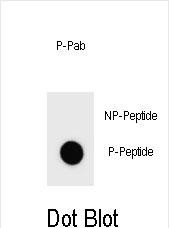
| WB | 1/500 - 1/2000 | Human,Mouse,Rat |
| IF | 咨询技术 | Human,Mouse,Rat |
| IHC | 咨询技术 | Human,Mouse,Rat |
| ICC | 技术咨询 | Human,Mouse,Rat |
| FCM | 1/200 - 1/400 | Human,Mouse,Rat |
| Elisa | 1/10000 | Human,Mouse,Rat |
| Aliases | Mast/stem cell growth factor receptor Kit, SCFR, Proto-oncogene c-Kit, Tyrosine-protein kinase Kit, CD117, Kit, Sl |
| Entrez GeneID | 16590 |
| WB Predicted band size | 109.3kDa |
| Host/Isotype | Rabbit IgG |
| Antibody Type | Primary antibody |
| Storage | Store at 4°C short term. Aliquot and store at -20°C long term. Avoid freeze/thaw cycles. |
| Species Reactivity | Mouse |
| Immunogen | This mouse KIT Antibody is generated from rabbits immunized with a KLH conjugated synthetic phosphopeptide corresponding to amino acid residues surrounding S716 of mouse KIT. |
| Formulation | Purified antibody in PBS with 0.05% sodium azide. |
+ +
以下是关于CD186(CXCR6)抗体的3篇模拟参考文献示例(实际文献需通过学术数据库查询):
---
1. **文献名称**:CXCR6 regulates localization of tissue-resident memory CD8 T cells to the airways
**作者**:Schenkel JM et al.
**摘要**:研究通过CXCR6抗体标记,发现CXCR6在呼吸道组织驻留记忆T细胞中的关键作用,揭示其调控免疫细胞定位的机制。
---
2. **文献名称**:Targeting CXCR6 inhibits prostate cancer metastasis
**作者**:Wang Q et al.
**摘要**:利用CXCR6抗体阻断实验,证明CXCR6信号促进前列腺癌侵袭,靶向抑制可减少肿瘤转移,为治疗提供新策略。
---
3. **文献名称**:CXCR6 identifies a novel subset of regulatory T cells in autoimmune disease
**作者**:Smith A et al.
**摘要**:通过CXCR6抗体流式分选,鉴定出一类具有免疫抑制功能的调节性T细胞亚群,其在自身免疫疾病模型中发挥保护作用。
---
**提示**:实际文献建议通过PubMed或Google Scholar搜索关键词“CXCR6 antibody”或“CD186 immune function”获取,并关注其在免疫调控、癌症或感染领域的研究。
CD186. also known as CXCR6. is a chemokine receptor belonging to the G protein-coupled receptor (GPCR) family. It specifically binds to the chemokine ligand CXCL16. playing a critical role in immune cell migration and activation. CXCR6 is expressed on various immune cells, including T cells, natural killer T (NKT) cells, and natural killer (NK) cells, and is implicated in inflammatory responses, autoimmune diseases, and cancer progression. Its interaction with CXCL16 facilitates immune cell homing to tissues such as the liver, lung, and inflamed sites, influencing both protective immunity and pathological inflammation.
CD186 antibodies are essential tools for detecting and studying CXCR6 expression and function. They are widely used in flow cytometry, immunohistochemistry, and functional assays to explore the receptor’s role in diseases. For instance, in cancer research, CXCR6 has been linked to tumor microenvironment modulation, metastasis, and immune evasion, with elevated expression observed in hepatocellular carcinoma and lung cancer. In autoimmune conditions like rheumatoid arthritis, CXCR6+ T cells contribute to chronic inflammation. Additionally, CXCR6 serves as a co-receptor for certain HIV strains, highlighting its relevance in virology.
Therapeutic targeting of CXCR6 using neutralizing antibodies is under investigation to disrupt pathogenic signaling in inflammation or cancer. However, its dual role in pro- and anti-inflammatory processes requires careful evaluation. CD186 antibodies thus remain pivotal in deciphering CXCR6 biology and advancing translational research.
×